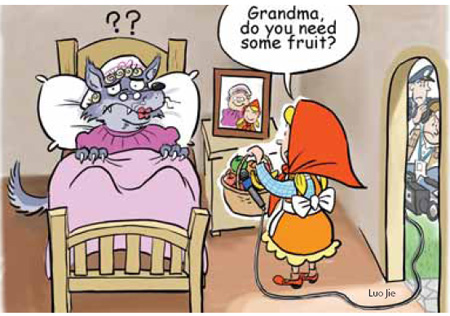
|
Metro> Comment
 |
|
Avoid needless suffering
By Qian Yanfeng (China Daily)
Updated: 2009-11-13 10:51
 There have been a lot of reports both on TV and in newspapers recently in which journalists went undercover to expose illegal activities. As a journalist myself, I must first admit that I have also done work in this way. And like many of my colleagues, I have come to identify it as an indispensable tool to obtain otherwise out-of-reach information. That was until I heard about the case of a driver in Shanghai who had been ensnared and wrongly accused by local traffic police of operating an illegal taxi. The two issues are different in purpose as those traffic authorities were trying to trap innocent people to meet work targets, while reporters seek to unveil the truth. But there is one common point that has gripped my conscience: shouldn't there also be sympathy and protection for those who are deceived? This question is even more delicate for journalists because our words reach the general public. In some recent undercover news broadcasts, the shots taken are, in my opinion, rather vulgar. With the help of modern technology like pinhole cameras, reporters can record the faces of people in secret. They are then shown to millions of viewers, regardless of whether they are really responsible for illegal activities or not. In one such video investigating the sale of fake medical invoices, a woman in her 40s is shown meeting an undercover reporter and sold an invoice. It turned out the woman was only responsible for delivering orders. The reporter eventually failed to get any valuable information from her other than the fake invoice she left behind. I sympathize with this woman because she could easily just be an anxious mother trying to earn money for her family. She was portrayed as a culprit but is in fact just a tool of a much larger criminal group. While I don't object to exposing crimes, I wish the approach taken could protect the privacy of the innocent. This issue seems more evident when we return to the Shanghai driver case. Using a pinhole camera, reporters filmed a man saying he made 20,000 yuan a month working as undercover bait for local traffic police. Shouldn't this man also be protected from public scorn? I doubt the man would tell the truth again after seeing his face on TV. There is still a large debate on when undercover techniques can be considered legitimate. Although there exists no clear-cut rule on this issue, one thing is for sure: reporters should not defend public deception if they intentionally cause needless suffering. |